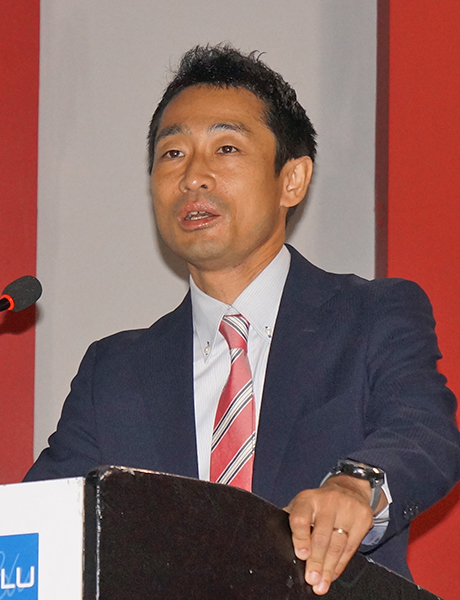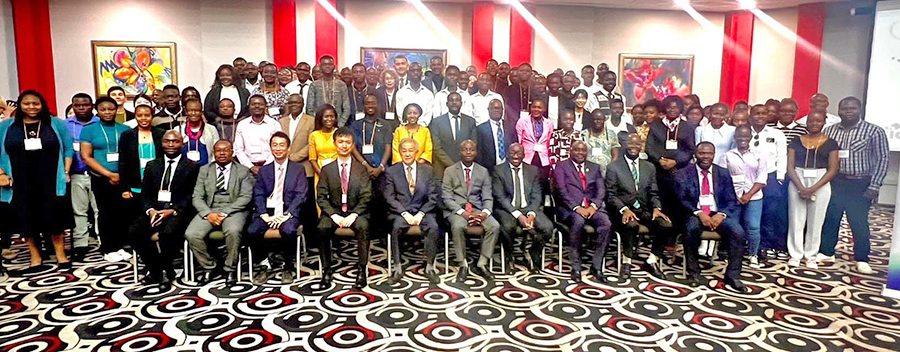On 24 September 2024, Kyoto University held a kick-off symposium for the project "Risk-based Participatory WASH Planning and Citizen-data WASH Statistics for African Peri-urban Settlements (SPLASH Project)" in Lusaka, Zambia.
The project will be implemented under the Science and Technology Research Partnership for Sustainable Development (SATREPS) program to address critical water and sanitation issues in Zambia over the next five years. It will receive support from the Japanese government, including US$2 million (JPY 300 million) for local operations and JPY 1.7 million for efforts by the participating Japanese universities.
The symposium was attended by over 120 participants, among whom were two permanent secretaries from the government of Zambia – Dr Brilliant Habeenzu of the Ministry of Technology and Science and Eng Romas Kamanga of the Ministry of Water Development and Sanitation – along with Professor Trywell Kalusopa, deputy vice chancellor of the University of Zambia (UNZA), Mr Victor Kagoli, director of public health at the Lusaka City Council, Dr Hidenori Harada, associate professor at the Kyoto University Center for African Area Studies (CAAS), and Dr Kawawa Banda, senior lecturer at the UNZA Integrated Water Resource Management Centre (IWRM). The latter two serve as project leaders. Representatives from Hokkaido University and Tohoku University were also present.
The SPLASH Project focuses on urban and peri-urban low-income settlements that are prone to cholera and other diarrheal diseases. It aims to promote behavior change among local residents utilizing participatory fecal contamination surveys and diarrhea risk visualization technology. Dr Habeenzu hailed the initiative as a "game changer" that brings cutting-edge technology to address critical WASH (Water, Sanitation, and Hygiene) management issues while fostering among the participating Zambian and Japanese professionals the expertise needed to tackle related health challenges.
Japanese Ambassador to Zambia Kazuyuki Takeuchi emphasized the importance of improving water and sanitation conditions, stating, "Although these challenges are often invisible in everyday life, we believe this project will empower people to recognize the need for better living conditions and make meaningful changes." The Chief Representative of the Japan International Cooperation Agency (JICA) Zambia Office, Mr Jotaro Tateyama, highlighted the tragic impact of the 2023-2024 cholera outbreak, which claimed over 700 lives and affected more than 21,000, stressing the necessity of WASH improvements to prevent future outbreaks.
Launched in the year marking the 60th anniversary of Japan-Zambia diplomatic relations, the SPLASH project is expected to further strengthen collaborative ties between the two nations.



Ministry of Water Development and Sanitation










